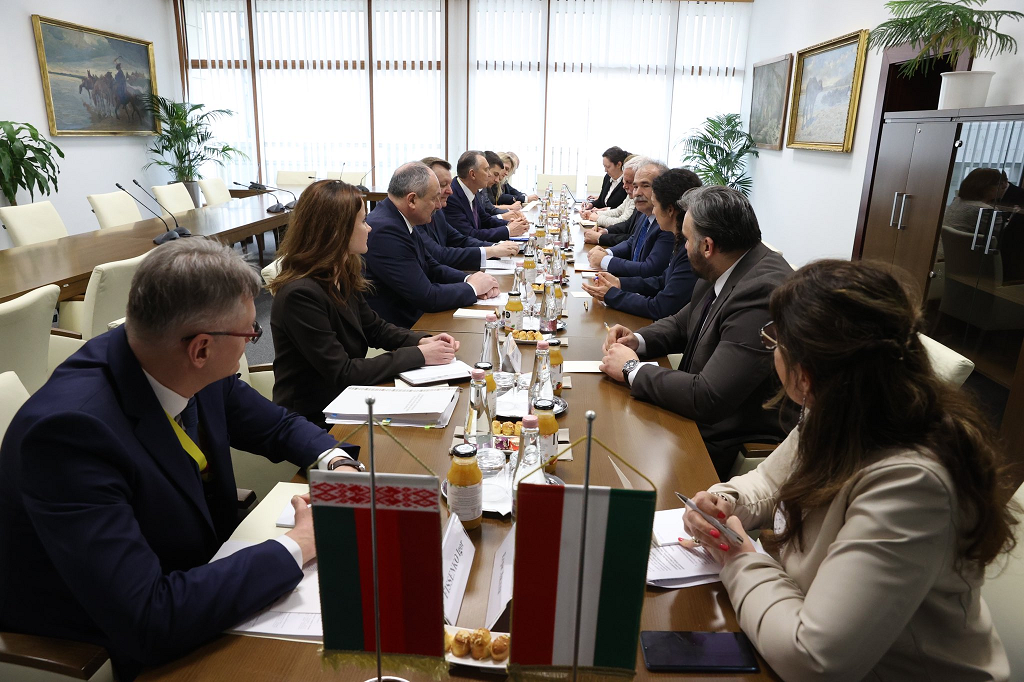The Belarusian regime uses Hungary and Potash to block new Western sanctions
 The situation has not changed
The situation has not changed

While Poland is actively lobbying for the introduction of tough new sanctions against Belarus and torpedoing the initiative to ease restrictions against the Belarusian potash sector, the Belarusian regime regards Hungary as a tool to ward off tougher EU sanctions and undermine the European consensus. Minsk, therefore, proposes deeper trade and economic cooperation with Budapest.
The fertiliser dispute has stalled work on new EU sanctions against Belarus. Some countries in Western Europe want new restrictions against Minsk to be accompanied by easing restrictions on exporting potash fertiliser. Poland and the Baltic states oppose this and insist on stricter sanctions against Belarus concerning human rights infringements, complicity in Russian aggression and plans to deploy nuclear weapons. Arguments about food security are weakening as wheat prices are already lower than before the war, and Belarusian potash fertilisers can be exported through Russia. Vilnius and Warsaw insist they will not be shipped through Lithuania and Poland.
Poland suggested that the Belarusian authorities cease repression in exchange for “space for political and economic manoeuvre”, but negotiations did not bring results. If repression and hostile actions against Poland continue, Warsaw will seek to expand anti-Belarusian sanctions.
A spokesman for the Belarusian Foreign Ministry, Anatoly Glaz, made an anti-Polish comment regarding Mateusz Morawiecki’s visit to the United States, linking this to American statements about plans to increase its military presence in Poland.
Meanwhile, Belarusian Foreign Minister, Siarhei Aleinik, visited Hungary to discuss agricultural cooperation with Agriculture Minister Istvan Nagy and hold talks with his counterpart Peter Szijjarto, who visited Minsk in February.
Budapest’s policy is to keep communication channels open while trying to convince Belarus to do everything possible to prevent the expansion of the Russian-Ukrainian war, dovetailing with the Belarusian call for a truce and negotiations without preconditions.
Minsk asserts that bilateral trade declined in 2022 and did not correspond to the potential for collaboration. A roadmap for developing economic cooperation between Belarus and Hungary emerged from a meeting of the Intergovernmental Commission on Economic Cooperation in Budapest. Primary emphasis was placed on cooperation in agriculture, industry, energy, management of water resources, construction, and tourism. Potential also exists for collaboration in the scientific and technical sphere and the field of information technology, increasing mutual trade in high-tech products.
Hungary sees Belarus as a reliable oil supply partner through the Druzhba pipeline, and the parties reaffirmed their intention to cooperate in the field of nuclear energy, both seen as critical to future Hungarian energy security.
Plans were announced to open a Belarusian tractor assembly plant in Hungary (most of the tractors that work on Hungarian lands are produced in Belarus) and develop cooperation in the pharmaceutical industry, where a special role is assigned to the Hungarian pharmaceutical and biotechnology company Gideon Richter. The cornerstone of this collaboration is that Belarusian products can enter the European market, and Belarus can buy necessary medicines through Hungary.
Belarusian Deputy Minister of Foreign Affairs, Yury Ambrazevich, met with the President of the UN General Assembly, Csaba Körösi, a Hungarian diplomat. Issues of international and regional security in the context of the armed conflict in Ukraine and the impact on global sustainable development were discussed. Ambrazevich protested the alleged negative consequences for world food security arising from “illegal” sanctions against the Belarusian potash industry. The same topic was raised during meetings with UN Under-Secretary-General for Economic and Social Affairs Li Junhua.
Despite the ambitious agenda, relations between Minsk and Budapest are unlikely to be transformed. Belarus continues to expand participation in hostilities against Ukraine, and US sanctions against Belarus will impede cooperation despite the lack of consensus within the EU on a new package of restrictions.
Subscribe to our newsletter




Situation in Belarus
Constitutional referendum: main consequences


 Video
Video
How to count the political prisoners: are the new criteria needed?


 Video
Video
Paternalism In Decline, Belarusian Euroscepticism, And The Influence Of Russia


 Video
Video












